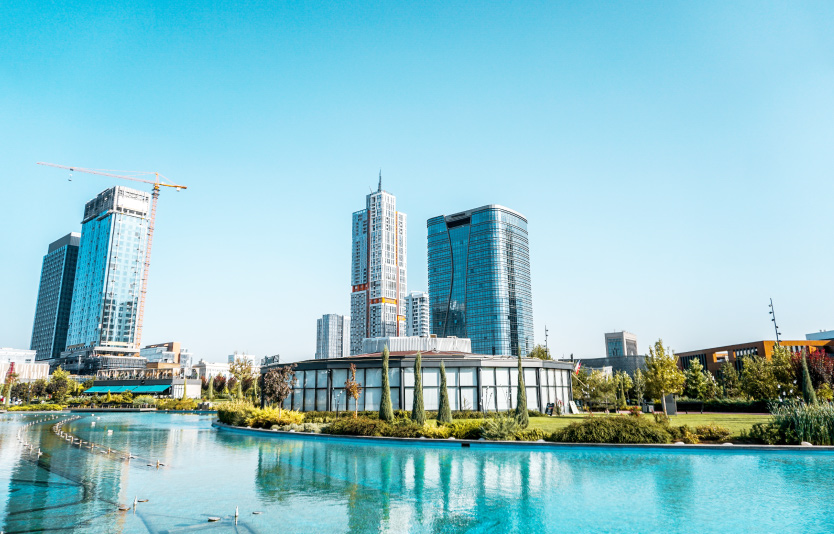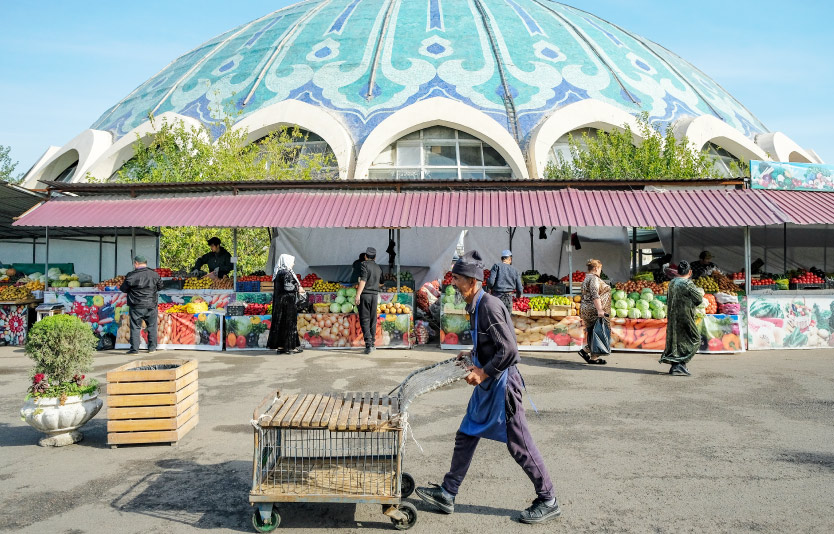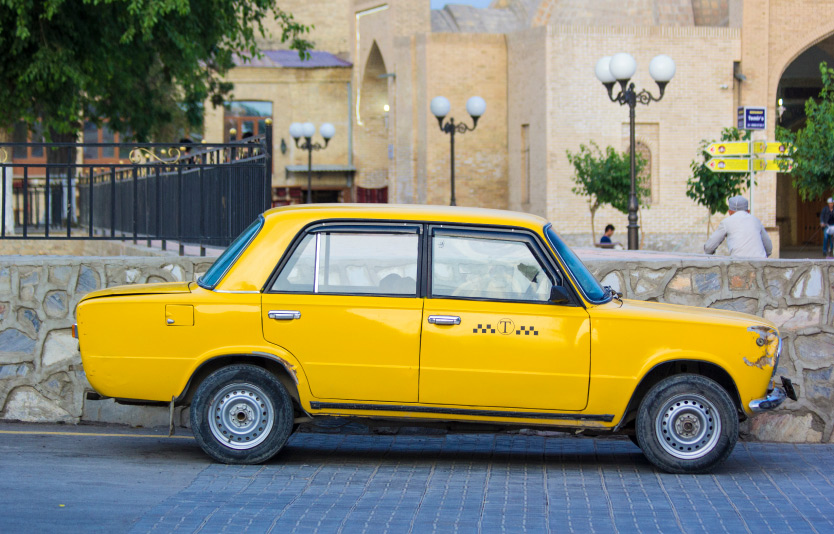Is Tashkent Safe? A Complete Traveler’s Guide for 2025
June 19, 2025
Tashkent, the vibrant capital of Uzbekistan, is a city where Soviet-era architecture meets ancient Silk Road history. With its grand metro stations, leafy parks, and bustling bazaars, it's attracting more travelers than ever. But as with any major city, the first question on many visitors' minds is: Is Tashkent safe?
The short answer is yes. Tashkent is widely considered a very safe city for tourists. This guide will walk you through everything you need to know about safety in Tashkent, providing practical tips to ensure your visit is as smooth and worry-free as possible.

Tashkent is safe city for tourists
How Safe is Tashkent? The Big Picture
Since 2016, Uzbekistan has made significant strides to boost its tourism industry, implementing dozens of new laws to improve safety and the public perception of law enforcement. These efforts have paid off. Today, Uzbekistan is rated a "Level 1: Exercise Normal Precautions" destination by the US Department of State, placing it among the safest countries in the world to visit.
Travelers often report feeling safer in Tashkent than in many European cities. This sense of security is supported by several key factors:
- Low Crime Rate: Violent crime is almost unheard of in Tashkent, especially against foreigners.
- Tourist Police: Specialized tourist police units patrol all major Silk Road cities, including Tashkent. They are there to assist travelers with directions, clarify rules, and handle any minor issues.
- Modern and Peaceful Atmosphere: Many visitors are surprised by how modern, clean, and calm Tashkent is. The city has a well-planned urban layout with peaceful parks and a friendly atmosphere.
The primary safety concern, as in any large city, is petty crime. Pickpocketing and bag-snatching can occur in crowded places, but with basic awareness, these risks are easily managed.

Safety Tips for Your Tashkent Trip
Practical Safety Tips for Your Tashkent Trip
While Tashkent is safe, following these simple tips will help you navigate the city with confidence.
- Be Aware in Crowds: The main risk is petty theft. Be extra vigilant in crowded areas like the Chorsu Bazaar and on public transportation, including the metro. Keep your valuables secure and out of sight.
- Use Licensed Taxis: Always use official taxis or ride-hailing apps like Yandex or My Taxi. These are safer and more reliable than unlicensed cars. Always agree on the fare before you start your journey to avoid inflated prices.
- Carry Your Passport: It is a legal requirement in Uzbekistan to carry your passport with you at all times. Police may perform checks, so always have it on hand.
- Respect Local Customs: Uzbekistan is a culturally conservative country. Dress modestly, especially when visiting religious sites like mosques and madrasahs. Public displays of affection are generally frowned upon.
- Follow Photography Rules: Be careful when taking photos. Avoid photographing government buildings, military barracks, police stations, and border checkpoints. While rules have relaxed, it's always best to ask before taking pictures, especially of people.
- Health and Hygiene: Do not drink tap water. Stick to bottled or boiled water to avoid stomach issues. Be cautious with street food, and always wash your hands and any fresh fruit before eating.
- Handle Money Wisely: The local currency, the Uzbek so'm (UZS), is not available outside the country. Bring enough cash (US dollars are easiest to exchange) and only use official exchange booths. Changing money on the black market is illegal.
Transportation Safety in Tashkent
Getting around Tashkent is easy and generally very safe. Here’s what you need to know about your options.
Transport Method | Safety Level | Key Recommendations |
Metro | High | Beautiful and efficient. Be mindful of pickpockets during peak hours. |
Taxi / Ride-hailing | High | Use apps like Yandex or My Taxi for safety and fair pricing. |
Walking | High (Day) / Moderate (Night) | Safe during the day. At night, stick to well-lit, populated areas. |
Common Scams and How to Avoid Them
While uncommon, a few tourist-focused scams exist. Being aware of them is the best way to stay safe.
- Taxi Scams: This is the most common issue. Drivers, especially at the airport, may quote highly inflated prices. Always negotiate the fare beforehand or use a ride-hailing app where the price is fixed.
- Fake Police: There are reports of individuals posing as police officers and demanding fines for fake infractions. If approached, remain calm, ask to see their credentials, and offer to go to the nearest police station. This will usually deter scammers.
- Currency Exchange: Only exchange money at official bank booths or hotel counters. Anyone offering to change money on the street is likely operating illegally and may try to cheat you.

Taxi at Uzbekistan
Is it safe to travel to Tashkent, Uzbekistan at night?
Tashkent is generally safe to explore at night, but it's best to use common sense. Main city streets and popular tourist areas are usually well-lit and populated. However, it is recommended to avoid walking alone in dark, residential, or isolated areas. Taxis are a convenient and safe option for getting around after dark.
What are the main safety concerns in Tashkent?
The main safety concerns for tourists are minor. They include petty crimes like pickpocketing in crowded markets and on public transport, and scams involving taxis or fake police officers. Violent crime is very rare.
Are there any specific areas of Tashkent to avoid?
Tashkent is a safe city overall, and there are no "no-go" zones for tourists. However, it is wise to be more cautious on the outskirts of the city or in poorly lit areas, particularly after dark. Sticking to the city center and major tourist attractions is always a good practice.
What should I do in an emergency in Tashkent?
In case of an emergency, you can contact the local services. Keep these numbers handy:
- Police: 102
- Medical Emergencies: 103
- Fire Department: 101
You can also contact your country's embassy for assistance. Your hotel staff can also be a valuable resource for help.
Now that you know that Tashkent is safe and well-prepared for tourists, you can focus on planning the exciting parts of your trip. The first step for many international visitors is securing a visa. The process has been greatly simplified with the introduction of the e-visa system, and services like GVC make it even more straightforward. You can start your e-visa application through their user-friendly portal, which guides you through each step. To help with your budget, you can easily review the visa fees ahead of time, ensuring there are no surprises. After you've applied, you can stop worrying and instead check on your visa's progress online. Using a reliable service like GVC removes the stress from travel paperwork, letting you look forward to exploring the beautiful, safe, and welcoming capital of Uzbekistan.
Related Articles:
- Tashkent Sightseeing Places A Complete Guide For International Visitors
- Best Places To Visit In Tashkent Discover Uzbekistans Hidden Gems
- Accommodation In Tashkent Uzbekistan Your Ultimate Guide
- Travel Guide To Tashkent The Capital Of Uzbekistan
- Discovering The Best Time To Visit Tashkent A Seasonal Guide
- Tashkent Holiday Packages Spending The Best Vacation In Uzbekistan
- Is Tashkent Worth Visiting
Tags




